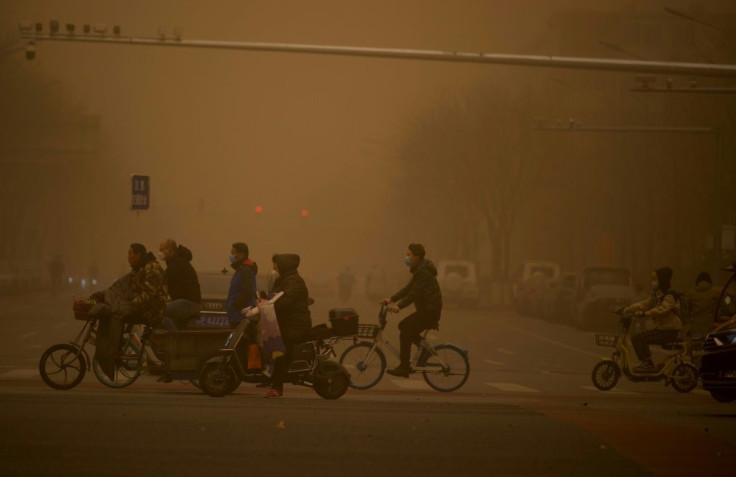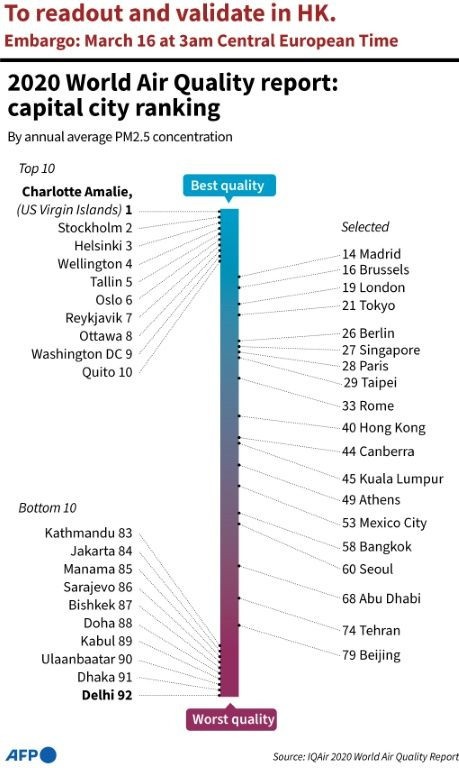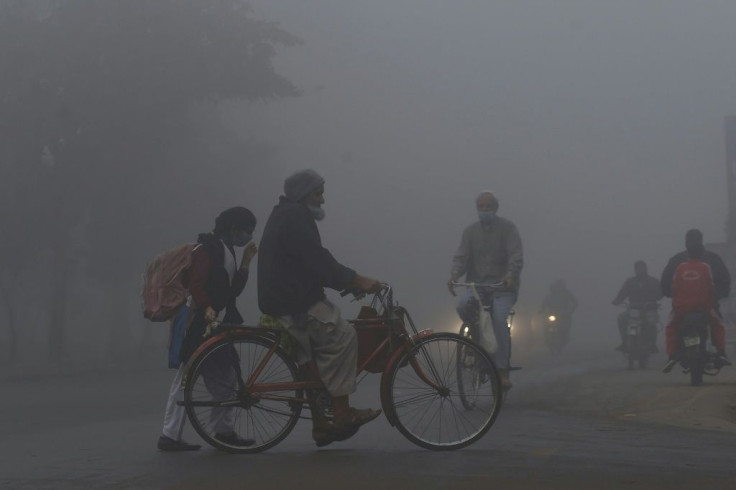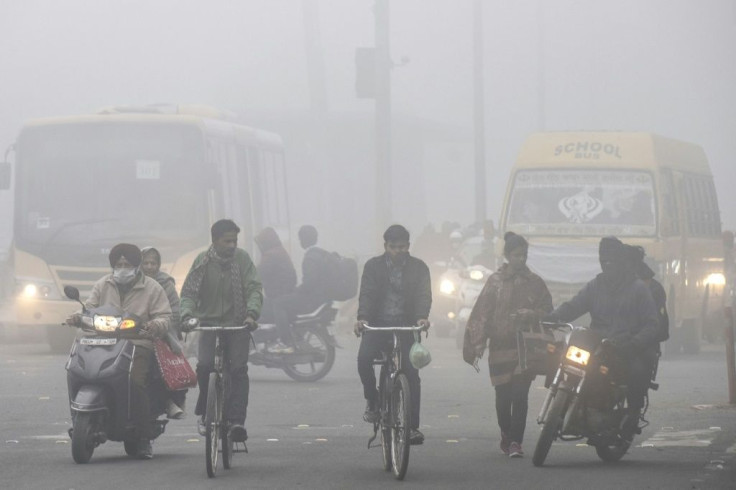Lethal Pollution High In 2020 Despite Lockdowns
Deadly small particle pollution in dozens of nations exceeded World Health Organization recommendations last year despite Covid lockdowns, according to a report released Tuesday.
The partial or complete shutdown of transport and industry for months at a time in 2020 reduced average levels of so-called PM2.5 pollution across the world, including in major cities, the IQAir quality report found.
Concentrations of the life-shortening particles -- cast off by traffic pollution and burning fossil fuels -- dropped 11 percent in Beijing, 13 percent in Chicago, 15 percent in New Delhi, 16 percent in London, and 16 percent in Seoul.

At least 60 percent of India's cities were more breathable last year than in 2019, and all of them had cleaner air than in 2018.
"Many parts of the world experienced unprecedented -- but short-lived -- improvements in air quality in 2020," said Lauri Myllyvirta, lead analyst at the Centre for Research on Energy and Clean Air (CREA) and co-author of the report.
"This meant tens of thousands of avoided deaths from air pollution."
But only 24 of 106 countries monitored met WHO safety guidelines, said the report, based on the world's largest database of ground-level air pollution measurements.

China and many South Asian nations experienced PM2.5 pollution several time greater than WHO recommended thresholds, and in some regions the concentration was six to eight times higher.
Twenty-two of the world's more polluted cities are in India.
Bangladesh, Pakistan, India, Mongolia and Afghanistan topped the 2020 ranking, with average annual PM2.5 concentrations between 77 and 47 microgrammes per cubic metre (mcg/m3) of air.

The UN says PM2.5 density should not top 25 mcg/m3 in any 24-hour period, or 10 mcg/m3 averaged across an entire year.
The most polluted capital cities in the world last year were New Delhi (84 mcg/m3) and Dhaka (77), with Jakarta, Kathmandu, Islamabad, Hanoi and Beijing all in the top 20.

About half of all European cities exceed WHO's suggested limits.
Air pollution levels were made worse in 2020 -- tied for the hottest year on record -- by climate change, the report noted.
Wildfires fuelled by scorching heatwaves led to extremely high pollution levels in California, South America and Australia.
Data from the first few months show PM2.5 pollution returning to pre-pandemic levels.
The European Space Agency (ESA) reported Monday that concentrations of another health-damaging air pollutant that dipped in 2020, nitrogen oxide (NO2), has also rebounded and, in some parts of the world, is on the rise.
After dropping, for example, about 40 percent last February in Chinese megacities Beijing and Chongqing, NO2 levels shot back up last month to 2019 in Beijing, and nearly double from 2019 levels in Chongqing.
"We expected air pollution to rebound as lockdowns are lifted across the globe," Claus Zehner, ESA's mission manager for the Copernicus Sentinel-5P Earth monitoring satellite, said in a statement.
"In the coming weeks and months, we expect increases of nitrogen dioxide concentrations also over Europe."
Air pollution shortens lives worldwide by nearly three years on average, and causes more than eight million premature deaths annually, earlier studies have found.
The WHO calculates 4.2 million deaths from outdoor air pollution, but has underestimated the impact on cardiovascular disease, recent research has shown.
Average lifespan is cut 4.1 years in China, 3.9 years in India, and 3.8 years in Pakistan.
In Europe, life expectancy is shortened by eight months.
PM2.5 particles penetrate deep into the lungs and enter the bloodstream. In 2013, the WHO classified it as a cancer-causing agent.
Compared to other causes of premature death, air pollution worldwide kills 19 times more people each year than malaria, nine times more than HIV/AIDS, and three times more than alcohol.
© Copyright AFP {{Year}}. All rights reserved.





















